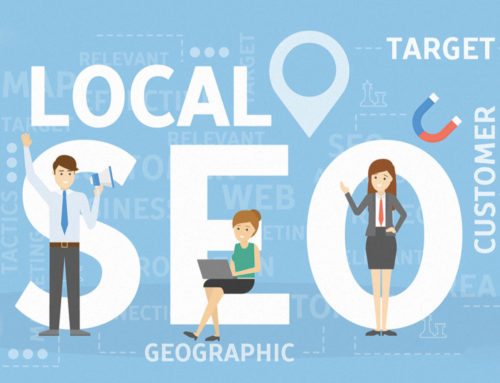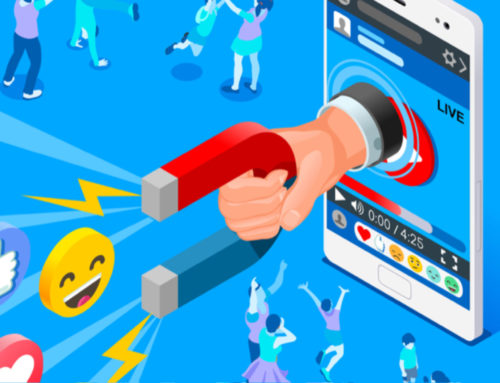SEO (Search Engine Optimization) cannot be effective without well-executed content. And that’s where social media marketing kicks in. SEO and SMM (Social Media Marketing) go together like peas and carrots.
Social Media Marketing helps you to get your content seen, which in turn can substantially increase your number of brand mentions on the web. Today marketers today are calling it “top of mind.” Which is the new way to say, “brand awareness.”
The better you promote your content across marketing channels, the more referring domains you will receive.
Which Channel Should You Use?
Social media marketing can be tricky because you have to understand your audience, and the level of their sophistication, and familiarity with a channel before you can decide to market yourself on it.
For example the older generation, that is becoming my generation, are more familiar with Facebook and Twitter than we are with Snapchat. Therefore, if you’re trying to reach generation X then you probably want to be on Facebook.
Understanding how to use that channel properly to reach your audience is also paramount. Facebook is very difficult for brands today to reach their audience because of the amount of money you now have to spend on advertisement. Twitter is a microblog and so every few seconds a new tweet goes out for something by someone, somewhere. Understanding the heartbeat of every channel and how to reach your audience is going to be very important otherwise your post will just end up in the ether.
Storytelling with social media
One of the things about social media marketing is it has the ability to take a series of pictures and tie them together into a slideshow in order to craft and weave a story together for your audience.
Other platforms are adopting this as well such as Instagram, Snapchat and Twitter. Video is becoming very popular and now we see live video becoming a trend.
The one caveat about all of this is using these tools well, versus just using them by the seat of your pants (ask us sometime about a cold cuts video). Strategy is a must when using video, or stringing pictures together to create a story. All this requires preplanning in order to actually become engaging and effective.
Protip: Consider the environment that you’re in how you hold the phone as you’re using it for live video and make sure you’re always moving and showing people what is around you.
Protip: Don’t use a hashtag (#) just for the sake of using a hashtag. Be purposeful about what you do. Also use images that are original as you tie things together to weave your narrative.
What story are you going to tell?
If there’s an event that’s exciting make sure that you have a smile. It’s surprising how many people do videos, but forget this. So make sure that your face looks friendly and the people around you are having a good time.
No one wants to watch a video where everybody is sad and crying and sitting Shiva.
Invite people to come out to your event and let them know where it is. Also make sure you pan around to let them see who is there and what is going on and don’t forget to tell them the exact address and time. Even though the videos can be done live, they can be replayed over and over again. And for now it seems the platforms are doing a very good job of letting people know that this is a pre-recorded video, but some people still mistake it for happening at the moment.
What’s the best channel for storytelling and doing social media marketing?
Again it goes back to your audience and how savvy they are with the technology. I find that Facebook and YouTube seem to be the primary places that you can actually go out and reach people if you make them aware of the channel that you were on.
Getting people to not only like you on Facebook but to follow you will help them be able to keep up with updates as you release them. However on YouTube things work a little differently.
On YouTube you can monetize your channel if you have enough subscribers that come to it on a regular basis. But most people don’t do that and it is very hard to get those subscribers. You can’t just create content and release it out on any channel and expect people to enjoy it watch it and it to go viral. The rate of content that is produced on the Internet today by one person is huge.
If you go on YouTube it’s going to be about the equipment you need. Good microphones, cameras, tripods and a good set up for a studio are required. And when it comes to sound it’s just not as simple as having a microphone you have to deal with echoes. Inevitability you’ll have to clean up audio and video mistakes, so good software, and skill, is needed.
Decide the plot of your story before you tell it even if it’s a true story.
If you’re using pictures make sure you lined them up correctly and it aligns to the store you’re trying to tell. More importantly make sure your story is relevant to your audience you’re telling to. Aligning your story to your audiences values can keep them connected to it, especially if it’s a story that is local.
Protip: The formula we use is Hook, Look, Took. Create a hook to draw them in (Once Upon A Time), then get them to look by further reading (or watching) and last, the took, or take-away. What is the value of this and how can I use it.
Which brings us to not forget your proposition value. This is the value of your story to your audience and how it can help who you’re trying to reach. Or as marketers use to give a statement on the value of why customers should use a particular service or company.



